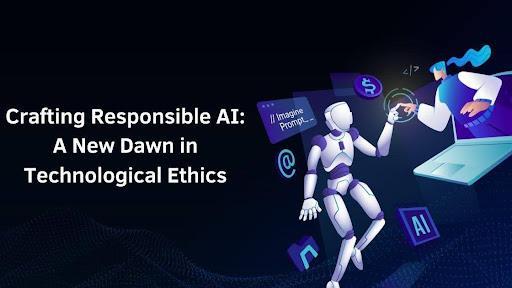
In today’s digital landscape, Ravi Kottur, a visionary in artificial intelligence, introduces a groundbreaking framework that seeks to harmonize technological advancement with ethical integrity. His work emphasizes the growing urgency for responsible AI systems that prioritize fairness, transparency, and societal values over unchecked innovation.
Ethical AI: More Than a Buzzword
The concept of responsible AI transcends mere technical efficiency, encompassing broader dimensions such as societal impact, equity, and sustainability. By embedding ethical principles throughout the development process, it ensures AI systems uphold and align with human values. This approach prioritizes foundational principles like fairness, transparency, and accountability at every stage, fostering systems that not only excel technologically but also adhere to social responsibilities. It underscores a commitment to creating intelligent solutions that positively influence society while maintaining ethical integrity.
The Building Blocks of Responsible AI
To construct an ethical AI system, three core pillars are highlighted:
These components aim to establish trust and reliability, making AI systems robust and inclusive.
Collaboration: The Key to Innovation
A notable aspect of the framework is its strong focus on cross-disciplinary collaboration. Building effective AI systems demands contributions from diverse domains, including technology, ethics, law, and social sciences. This integrative approach fosters an environment of shared expertise and understanding, enabling the identification and resolution of complex challenges. By leveraging diverse perspectives, the framework ensures comprehensive solutions that are not only technologically robust but also ethically sound and socially aligned, promoting a balanced and inclusive approach to AI development.
Education as a Pillar of Progress
Educational initiatives form a cornerstone of this framework, aiming to build awareness and expertise across all stakeholders. These programs focus on practical applications, ethical considerations, and continuous learning, ensuring that AI practitioners and end-users alike are equipped to navigate the complexities of modern AI systems.
Oversight and Accountability
To maintain ethical integrity in AI development, establishing robust oversight mechanisms is essential. This involves creating diverse ethics committees that represent varied perspectives to guide decision-making and address potential concerns. Implementing stringent governance frameworks ensures that ethical standards are consistently upheld throughout the development lifecycle. Regular audits and performance monitoring play a crucial role in evaluating system compliance, identifying potential risks, and enabling adaptations to emerging challenges. These measures collectively ensure that AI systems operate responsibly while maintaining societal trust and alignment with ethical values.
The Future of AI Innovation
The framework addresses critical challenges ahead, such as maintaining a delicate balance between rapid innovation and ethical considerations while ensuring scalable and universally applicable ethical guidelines. As AI systems grow more sophisticated, their influence on societal norms and structures deepens, creating new dimensions of impact. This evolution demands dynamic, adaptive ethical frameworks that evolve in tandem with technological advancements. Continuous updates, proactive risk management, and global collaboration will be essential to align AI innovations with societal values and foster sustainable progress.
To conclude, Ravi Kottur‘s innovative framework for responsible AI development provides a vital roadmap for balancing ethical principles with technological progress. By seamlessly integrating fairness, transparency, and accountability into AI systems, his work emphasizes the transformative power of AI to reshape industries while promoting societal well-being. This visionary approach ensures AI aligns with human values, fostering trust and inclusivity. It emphasizes the critical role of ethical considerations in driving sustainable advancements, paving the way for a future where technology elevates societal standards rather than compromising them.